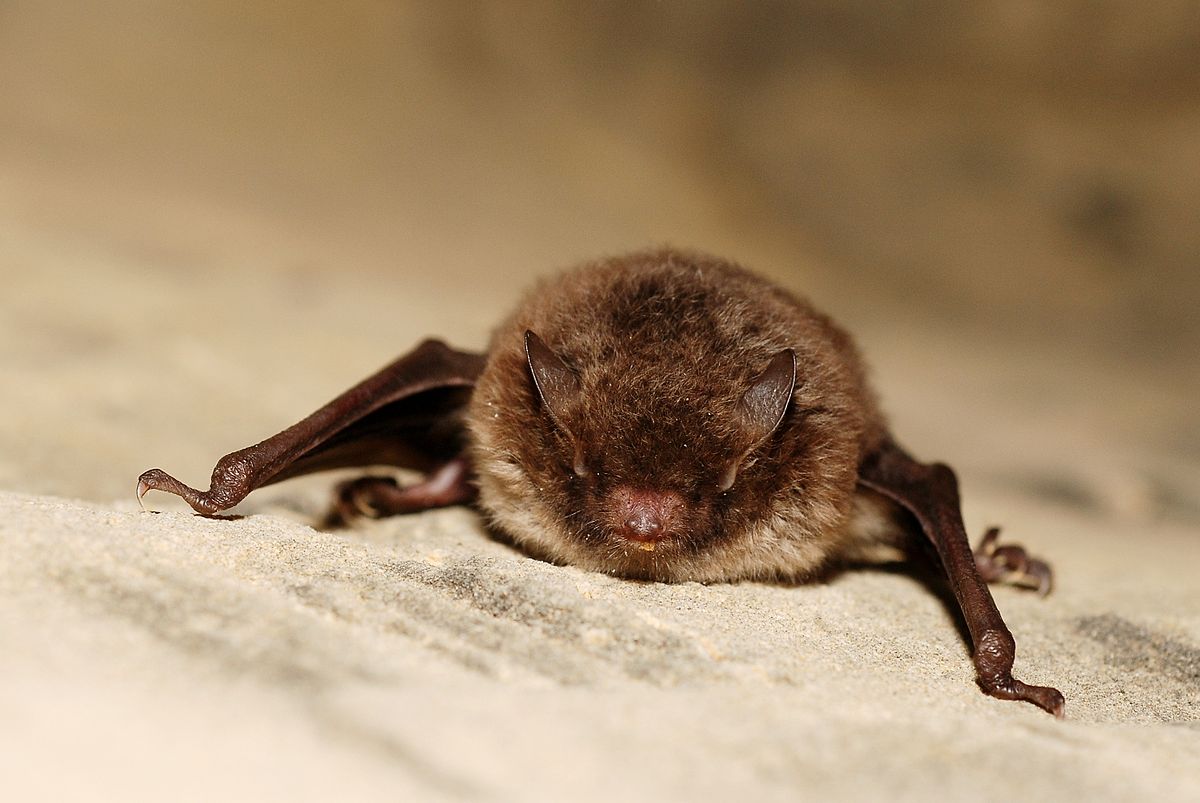Bats are one of the main predators of flying insects, playing a vital role in the food chain, and are a key indicator of habitat health. There are 18 species of bats in the UK, all of which have been recorded in Sussex. Brighton is home to some of our most iconic bat species, and the bat box project will see roosting sites installed across five of the city’s parks, all of whom have recorded bats before.

Daubenton Bat
One of the parks that will have new bat boxes installed is St Ann’s Well Gardens, in Hove. A bat survey conducted in the park recently confirmed two bat species. The first of these is the Daubenton’s bat (Myotis daubentonii), which volunteers identified not only by its call, but by its distinctive foraging style low over water. The second recorded species was the small but acrobatic Common Pipistrelle (Pipistrellus pipistrellus), the UK’s commonest species. In the other parks around Brighton surveys have also recorded the large and leisurely Serotine (Eptesicus serotinus), the big, fast and dynamic Noctule (Nyctalus noctula) and the charming Brown Long-Eared bat (Plecotus auritus).

Greater Noctule Bat
Among the challenges faced by bats in urban areas are loss or disturbance of suitable roosting sites, due to the treatment of roof timbers with toxic chemicals, insulation of cavity walls, building renovation and the obstruction of roost access, as well as lack of consultation before construction work begins. Also a lack of insect abundance and habitat connectivity limits their foraging opportunities. However, despite such challenges there seems to be a decent enough bat population utilising the parkland in Brighton and Hove. This would seem to indicate that these bats have found enough habitat diversity, habitat continuity and food availability to sustain an urban existence.

Serotine Bat
The bat box project will further ensure that additional, suitable roosting spaces are provided to support the bat population across five chosen parks. These are St Ann’s Well Gardens, Withdean Park, Queen’s Park, Preston Park and Hove Park.

From October the team at Infinity Foods will create a bat themed window to raise awareness of these often undervalued elusive animals, and to celebrate the joint project with Sussex Wildlife Trust. Staff in store will also display a range of Bat Conservation Trust and Sussex Bat Group leaflets, sharing more information about bats and their habits.
Sussex Wildlife Trust is delighted to be able to work on this project with Infinity Foods and other partners in the city, ensuring that the bat populations in Brighton can continue to thrive.
Ryan Greaves is a Wildlife Leader for Sussex Wildlife Trust



